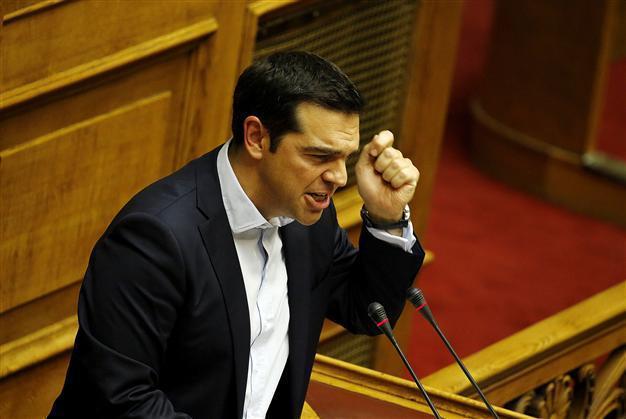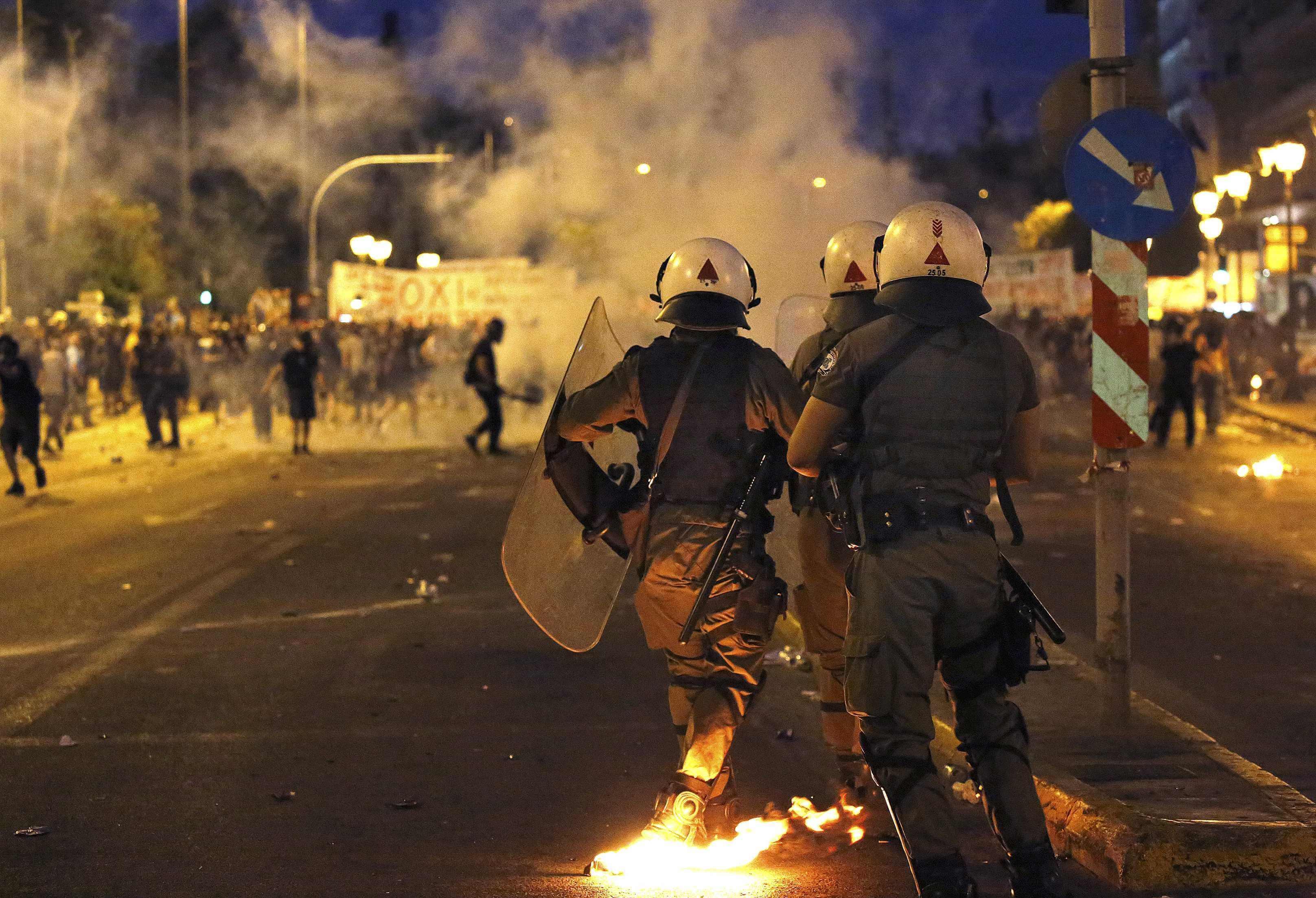Greek lawmakers back bailout ahead of EU, ECB talks
ATHENS - Agence France-Presse

Reuters Photos
Greek lawmakers backed a deeply contentious bailout package on July 16, clearing the first hurdle towards securing a rescue hours before fresh talks between eurozone ministers but leaving the radical left government in Athens weakened.Prime Minister Alexis Tsipras managed to push through a series of unpopular reforms demanded by the country's international creditors, while on the streets of Athens anti-austerity protests turned angry as protesters threw firebombs at police.
But the premier suffered a major mutiny within his radical left Syriza party -- 32 out of 149 voted against the measures, and a further six abstained -- and had to rely on the support of pro-European opposition parties.
A final count showed 229 members of parliament out of 300 voted in favour of the measures, which included sweeping changes to Greece's taxes, pensions and labour rules.
Backing from the Greek parliament was a requirement for Athens to secure a third bailout worth up to 86 billion euros ($94 billion) from the EU, and means tough talks to finalise the long-awaited deal can begin in earnest.
Eurozone finance ministers on July 16 morning will hold a call to discuss next steps, hours before the European Central Bank's governing council meets to discuss how to keep Greece's banks from collapsing.
European governments are meanwhile divided over options to help Greece meet its short-term cash needs while it waits for the eurozone bailout deal to be finalised, which will likely take at least four weeks.
But for Greece to secure its new funds, it must win the approval of the domestic parliaments of several of the other 18 members of the eurozone, with all eyes in particular on EU powerhouse Germany when its lawmakers vote on July 17.
Tsipras is facing a broader revolt over the reforms as Syriza came to power in January on anti-austerity promises.
"I had specific choices before me: one was to accept a deal I disagree with on many points, another was a disorderly default," he said in an impassioned speech to parliament before the vote.
"We will not back down from our pledge to fight to the end for the right of the working people," he said, adding that "there is no other option but for all of us to share the weight of this responsibility".
Many of Syriza's hardline leftists voted against the measures, as did former finance minister Yanis Varoufakis, the head of parliament Zoe Constantopoulou and Energy Minister Panagiotis Lafazanis.
Current Greek Finance Minister Euclid Tsakalotos said during Wednesday's parliamentary debate that his decision to back the bailout terms was something that "will burden me my whole life".
"I don't know if we did the right thing. I do know we did something we felt we had no choice over," he said.
But its viability was called into doubt by the International Monetary Fund, which has warned Greece's EU creditors will have to go "far beyond" existing estimates for debt relief -- an issue eurozone hawks such as Germany have already rejected out of hand.
Greece's creditors estimate Athens needs 12 billion euros to get through mid-August -- including 4.2 billion euros it must pay the ECB on July 20 to keep its crippled banks alive -- but some countries are resisting contributing to any bridge financing.
The European Commission on July 15 formally backed a controversial proposal to use an EU-wide crisis fund to cover Greece's short-term cash needs, officials said, setting up a clash with Britain and Germany.
The European Central Bank has been keeping Greek banks afloat with emergency liquidity, but it could be forced to cut off that aid if Greece misses the July 20 debt repayment.
This week, Athens missed its second payment to the IMF in two weeks, bringing the country's arrears to the Washington-based lender to 2.0 billion euros, an unprecedented embarrassment for a developed nation.

In the capital, Greeks -- most of whom voted against austerity measures very similar to those demanded in the new bailout in a referendum on July 5 -- took to the streets to voice their anger at the government.
As MPs prepared to vote in parliament, furious demonstrators carrying signs reading "We said 'No', we meant 'No'", threw firebombs at police who responded by firing back tear gas.
"Our government is a government of traitors. We voted 'No', then Tsipras signs up to even worse conditions. It's madness," raged unemployed demonstrator Arsenios Pappas.
"He lied to us. So if he has any dignity left he has to resign," said 28-year-old Andronicus Sarlakis.
Fresh polls published late July 14 by Kapa Research, however, found 72 percent of Greeks surveyed thought the deal was necessary, with the majority blaming Europe for the "tough measures".
















